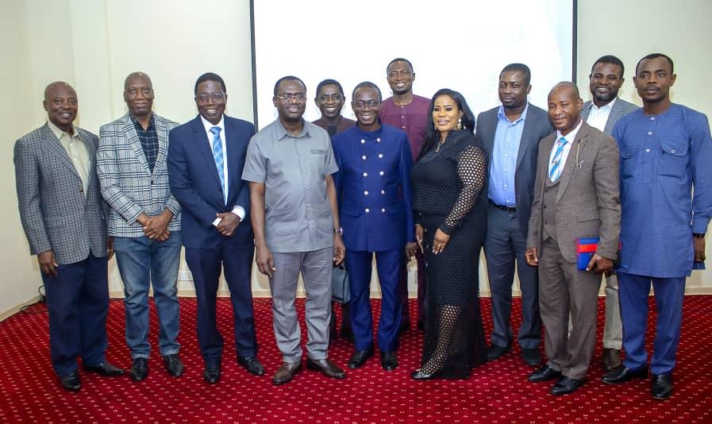
Audio By Carbonatix
The Asian African Consortium (AAC), a subsidiary of Jospong Group of Companies has signed a Memorandum of Understanding with the University of Cape Coast (UCC) to undertake research to boost rice, maize and soya production in the country.
The objectives of this partnership are to identify common areas of collaboration to address the overall mandate of the parties, develop a plan for collaborative operations and detail the scope and principles of engagement between the parties, while aiming at achieving food efficiency in the country.
The CEO of the AAC, Mrs. Adelaide Araba Siaw Agyepong, at the signing ceremony in Accra on Thursday April 20, 2023, noted that the agreement will facilitate ACC’s collaboration with the UCC research institutes across Ghana to depeen research and development for social change deal with challenges for economic growth and development.
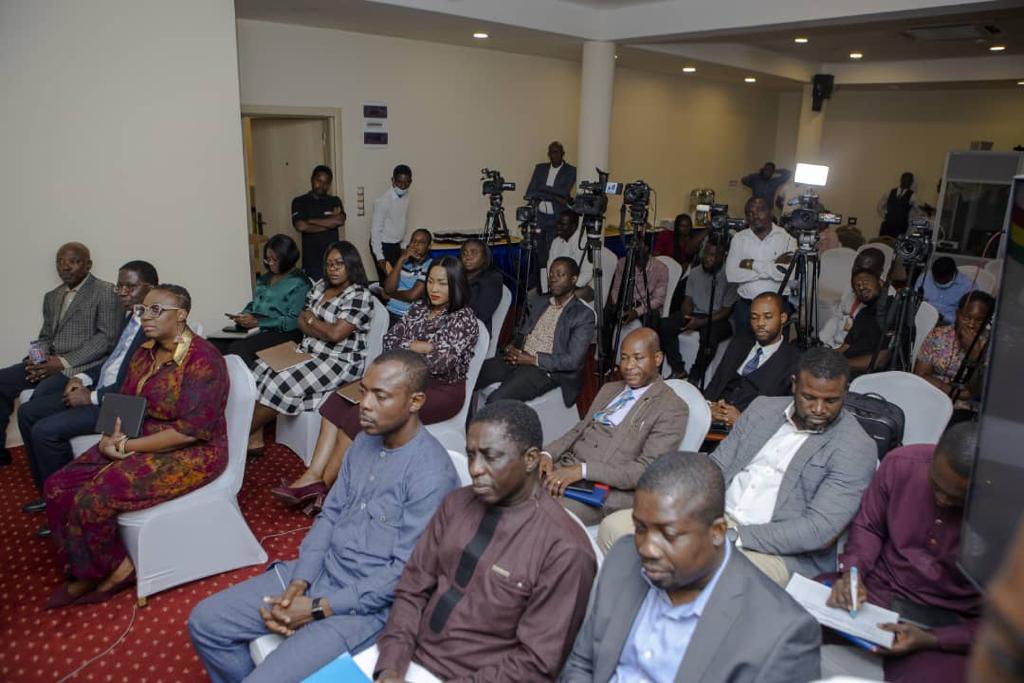
She further added that it will also facilitate the establishment of a research and development consortium comprising of business, crop science, technology, agriculture engineering, chemical engineering as a standing committee to advise on the full value chain in rice, maize, soya and the production of other staples.
“Again, this arrangement will facilitate the establishment of a seedling centre for the commercial production of seedlings for sale to farmers,” she hinted.
She emphasized that “the ACC’s integrated rice project is to make Ghana self-sufficient in rice production resulting in significant economic benefit for the country”.
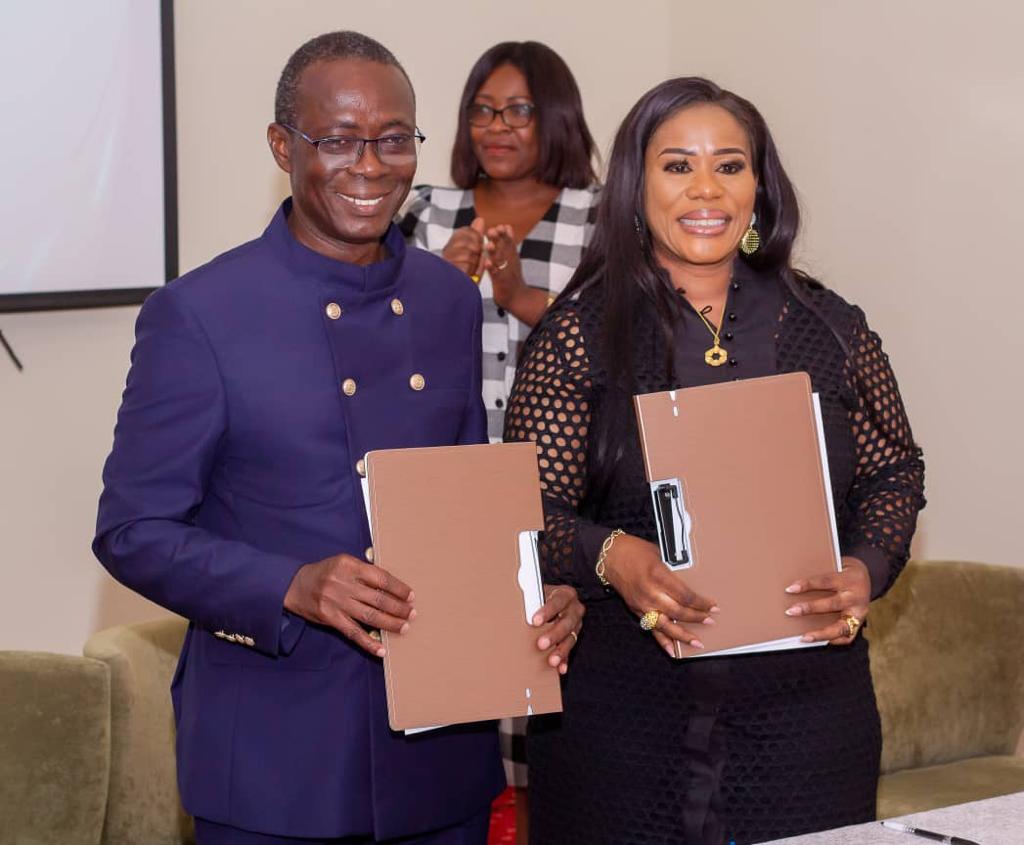
The AAC CEO noted that the partnership is crucial for increasing collaboration and boosting Ghana’s economy.
Mrs. Siaw Ageypong, who was particularly pleased with the arrangement between the two institutions, was hopeful that this MoU will pave way for many other collaborations between the two institutions.
Prof. Johnson Nyarko Boampong - Vice Chancellor of the University of Cape Coast, reiterated that the University has a specialized training for students to become entrepreneurs and self-sufficient and also can create jobs for others.
“We also focus on empowering our students with competences to succeed in life” he added.
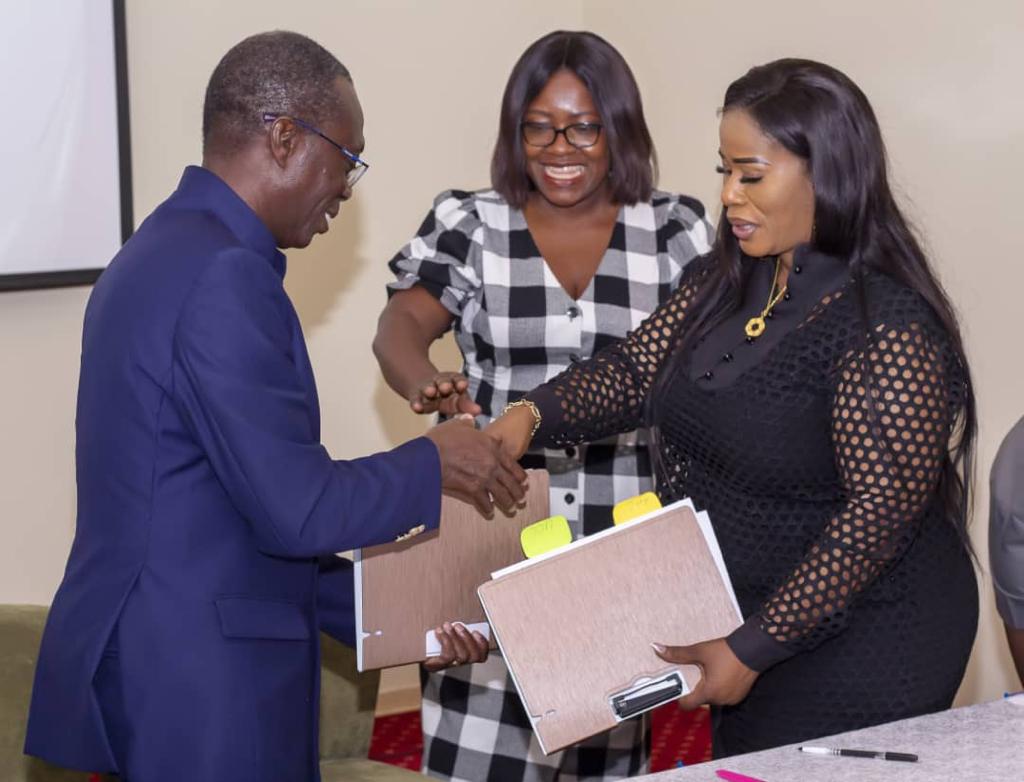
He lamented that with Ghana’s abundant resources and arable land, it still imports food, which it can produce locally.
“It is very sad that Ghanaians have to import from other countries to feed ourselves yet there are countries with no arable lands who have found ways to produce food locally and even export,” he lamented.
He therefore stressed that the University is fully behind the project, noting that the University in its small way of complementing efforts to curb importation has acquired a 450 acre of land for agricultural purposes.
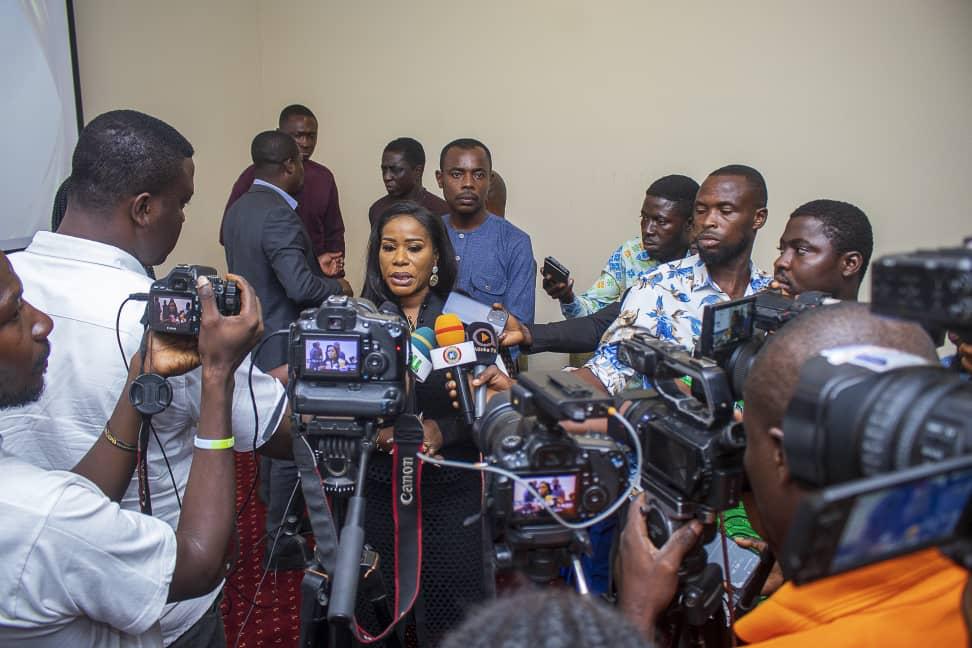
Executive Chairman of Jospong Group, Dr. Joseph Siaw Agyepong, in a brief remark noted that agriculture and research must go hand in hand to ensure that the country derives its full benefits.
He noted that rice is now a staple food in Ghana and initiatives must be taken to produce quality and the needed quantity backed by research and this cannot be achieved without the academia.
He encouraged the University to ensure that they come up with seedlings that can withstand the Ghanaian conditions as well as produce the needed yields for maximum benefits.
“We have the knowledge and resources to see this through, therefore you have no excuse not to perform” he reminded the academia.
Background
Last year, Asian African Consortium entered partnership with major rice industry players in Thailand and Ghana to develop an integrated rice farming project. This move by Jospong Group stemmed from the government’s decision to boost the economy through import substitution.
A core team later visited Thailand for the Ghana-Thailand Business conference in March 2023 with researchers from various universities in Ghana as well as major players in the rice industry.
Last year, Ghana spent over GH¢6.8billion (equivalent to US$560million at current market rates) importing rice, a grain that can be produced locally.
While total rice consumption stood at 1.4 million metric tonnes in 2022, imports valued at US$560 million accounted for 800,000 metric tonnes (mt) of the consumption figure, with domestic production catering for the remaining demand – according to data from IDH Sustainable Trade, a foundation headquartered in The Netherlands.
Similarly, according to the Ministry of Food and Agriculture, between 2010 and 2020 the country’s rice imports hit a staggering US$8billion. This, in addition to imports of other food items that can be produced locally, has been a major source of concern for stakeholders.
Latest Stories
-
Police arrest suspect for unlawful possession and attempted sale of firearm
24 minutes -
3 arrested in connection with Tema robberies
31 minutes -
Your mouth on weed is nothing to smile about
40 minutes -
25% university fees hike, what was the plan all along? — Kristy Sakyi queries
2 hours -
Some OMCs reduce fuel prices; petrol going for GH¢10.86, diesel GH¢11.96
3 hours -
Trump says health is ‘perfect’ amid ageing concerns
3 hours -
China’s BYD set to overtake Tesla as world’s top EV seller
3 hours -
Joy FM’s iconic 90’s Jam returns tonight: Bigger, better, and packed with nostalgia
4 hours -
Uproar as UG fees skyrocket by over 25% for 2025/2026 academic year
5 hours -
Japan PM joins fight for more female toilets in parliament
6 hours -
Ga Mantse declares war on fishing industry child labour
6 hours -
Adom FM’s ‘Strictly Highlife’ lights up La Palm with rhythm and nostalgia in unforgettable experience
7 hours -
OMCs slash fuel prices as cedi gains
9 hours -
Around 40 dead in Swiss ski resort bar fire, police say
9 hours -
AFCON 2025: Aubameyang and Nsue make history among oldest goalscorers
10 hours

